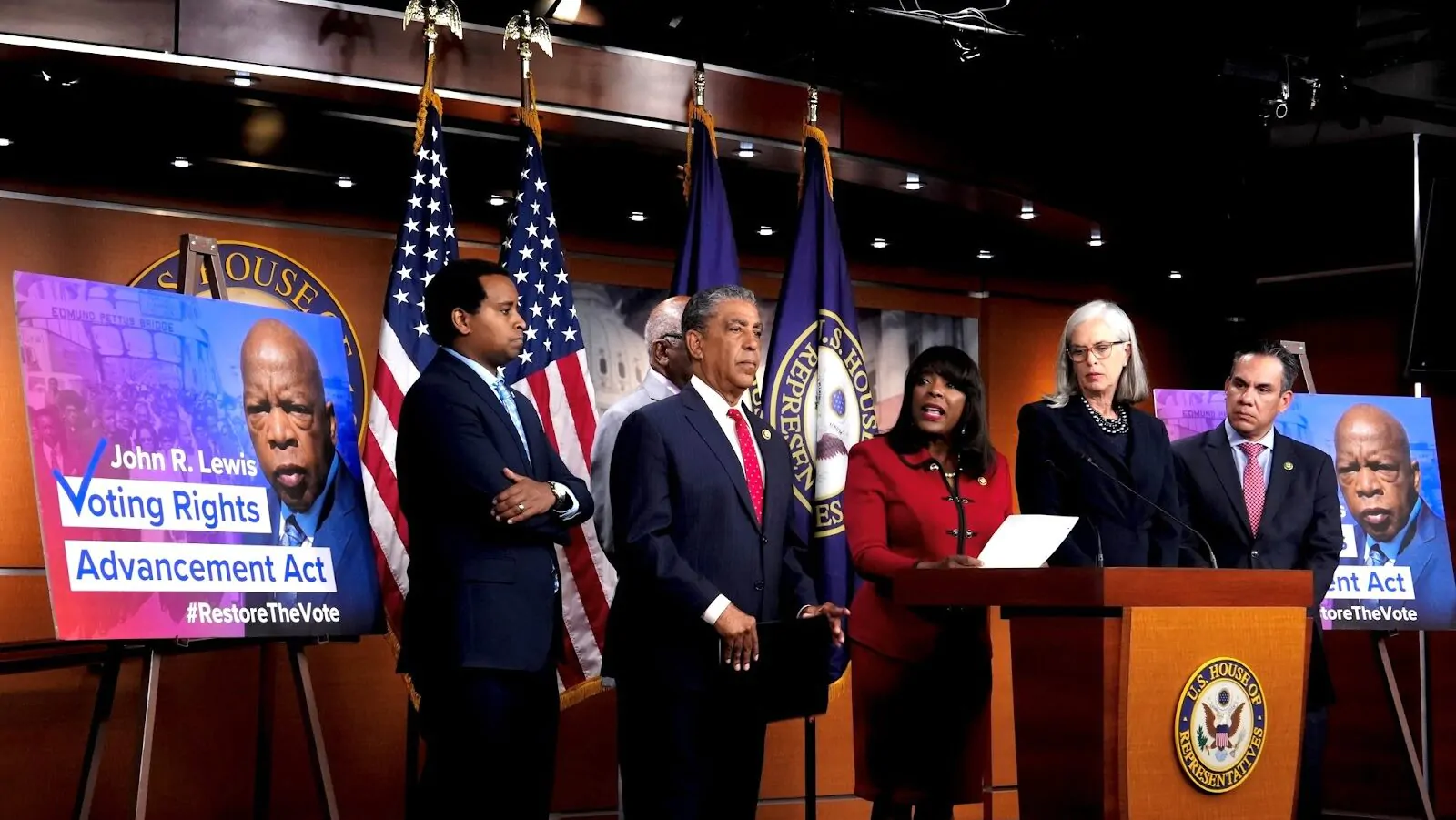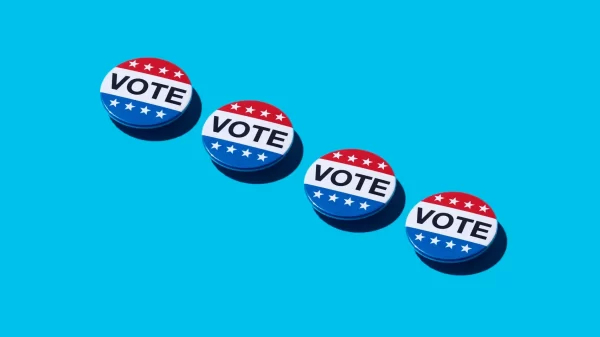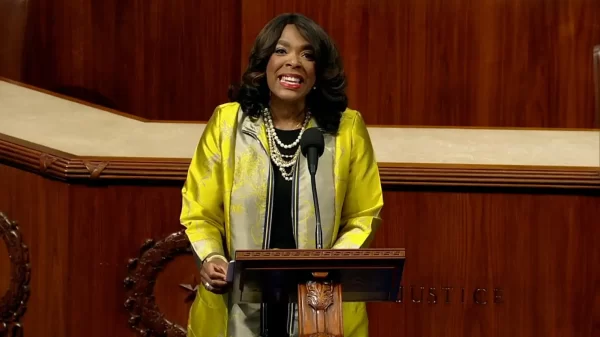On Wednesday, U.S. Representative Terri Sewell, AL-07, was joined by House Democratic Whip Katherine Clark, MA-05, House Democratic Caucus Chairman Pete Aguilar, CA-33, Representative James Clyburn, SC-06, Assistant Democratic Leader Joe Neguse, CO-02, and Congressional Hispanic Caucus Deputy Chairman Adriano Espaillat, NY-13, for a press conference marking the 11th anniversary of the Supreme Court’s Shelby County v. Holder decision. The event underscored the ongoing fight to restore the full protections of the 1965 Voting Rights Act through the passage of the John R. Lewis Voting Rights Advancement Act.
Rep. Sewell opened the press conference, emphasizing the historical significance of the Voting Rights Act and the detrimental effects of the Shelby decision. “It was 11 years ago when the Supreme Court’s conservative majority gutted the heart of the Voting Rights Act of 1965, eliminating voter protections and removing federal oversight from states with a proven track record of voter discrimination,” Sewell stated. She highlighted the severe repercussions, including long lines at polling stations, stringent ID requirements, closed polling locations in minority communities, and bans on early and absentee voting.
Sewell detailed the legislative response, noting that since the Shelby decision, 31 states have implemented at least 103 new laws restricting voting access, disproportionately affecting Black and minority voters. She pointed to Alabama’s felony charge for assisting with absentee ballots as an example of these restrictive measures.
Emphasizing the historical continuity of these barriers, Sewell remarked, “While Black voters may not need to count the number of jelly beans in a jar, modern-day barriers to voting are just as pernicious as the poll taxes and literacy tests of the past.”
The John R. Lewis Voting Rights Advancement Act, introduced for the fifth time in September, seeks to establish a modern formula for federal oversight, targeting states with recent histories of voter discrimination. Sewell expressed frustration at Republican resistance to considering the bill, despite the bipartisan reauthorization of the Voting Rights Act in the past.
“Instead of working with us to restore its protections, our Republican colleagues have instead chosen to spread disinformation and sow seeds of doubt about the integrity of our elections,” Sewell said. She called for bipartisan effort, noting that the right to vote should not be a partisan issue.
Reflecting on the personal significance of the fight for voting rights, Sewell, a Selma native, drew connections between the historic Selma march and current legislative efforts. “Never did I think that the cause for which they sacrificed would become our cause. It goes to show that progress is elusive, and every generation must hold on to the progress of the past and try to work to advance it.”
Sewell concluded by urging political courage from her colleagues, stressing that the strength of democracy lies in ensuring every American’s voice is heard at the ballot box. She then introduced Democratic Whip Katherine Clark to continue the discussion.



















































